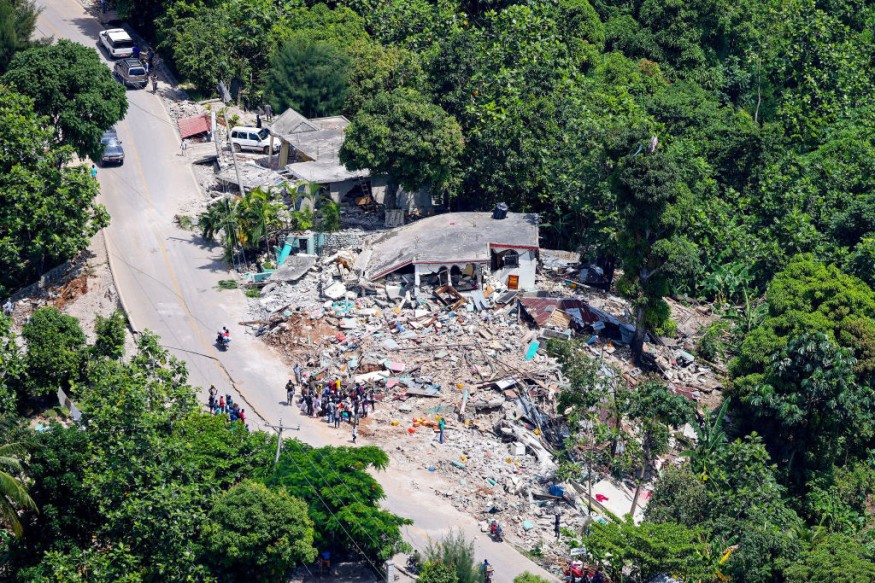A 5.3 magnitude earthquake followed by a series of aftershocks in the southwest part of Haiti and west of the capital city of Port-au-Prince, on Monday.
The US Geological Survey stated the earthquake, which were followed by aftershocks ranging between 4.4 and 5.1 magnitudes, occurred near the city of Les Cayes, Nippes District, located about 200 kilometers (124 miles) west of the capital. The first quake at 08:16 a.m. was followed by the aftershocks nearly an hour later.
Earthquake Impact
The Haitian Civil Protection Agency (DPC) said that the earthquake killed at least two people and injured 50 others. One person died due to a landslide in Fond des Negres and the second person killed when a wall collapsed in Anse-a-Veau.
The DPC added "nearly 200 homes were destroyed and around 600 others damaged in the Nippes district." In addition, the earthquakes also resulted in the closure of schools and the shutdown of businesses on Monday.
The earthquake prompted several tsunami warnings across the Caribbean region, with three to 10 feet high waves was estimated to hit Port-au-Prince following the earthquake. The tsunami warnings were later on withdrawn. Rescue operations are underway with the aim of recovering potential survivors under collapsed infrastructure.
Related story: Scientists Baffled by Continuous Earthquake in South Carolina
Economic Repercussions

Haiti is still recovering economically when the recent earthquake happened-nearly after almost six months when a 7.2 magnitude earthquake struck southwest Haiti on August 14, 2021, killing more than 2,200 and damaging or destroying approximately 137,500 homes.
An earthquake situation report on September 7, 2021 said Haiti is facing severe damages and economic losses amounting to at least US$1.5 billion, which is equivalent to 10% of Haiti's gross domestic product at that time. Over the past decades, frequent earthquakes ranging from low to high have been occurring in Haiti and across the Caribbean region.
The most extreme earthquake was recorded in Haiti on January 12, 2010, when a 7.0 magnitude earthquake resulted in hundreds of thousands of casualties.
International Financial Aid
The impact of earthquakes is significant in Haiti due to the country's poor infrastructure condition. As a result from past earthquakes since 2010, the World Bank provided support to Haiti through the creation of the Infrastructure and Institutions Emergency Recovery Project (IIERP), which is designed to provide support to the Haitian government during post-disaster recovery efforts.
The World Bank said this support is achievable through rebuilding key institutions and infrastructure. Additionally, the World Bank's International Development Association (IDA) had financed urgent relief actions and combined with capacity building, training, and reconstruction planning.
Security Challenges amid Recovery Efforts
The economic repercussions arising in the aftermath of the recent earthquakes in Haiti contributes to the country's existing struggling economy and security problems related to gang violence.
Under such circumstances, Canadian Prime Minister Justin Trudeau held a virtual conference on January 21 and stated "immediate action" is necessary to resolve the security situation in Haiti. In February, the US and other countries are expected to make donations regarding the matter, in addition to donations for earthquake victims and their families.
© 2025 NatureWorldNews.com All rights reserved. Do not reproduce without permission.





